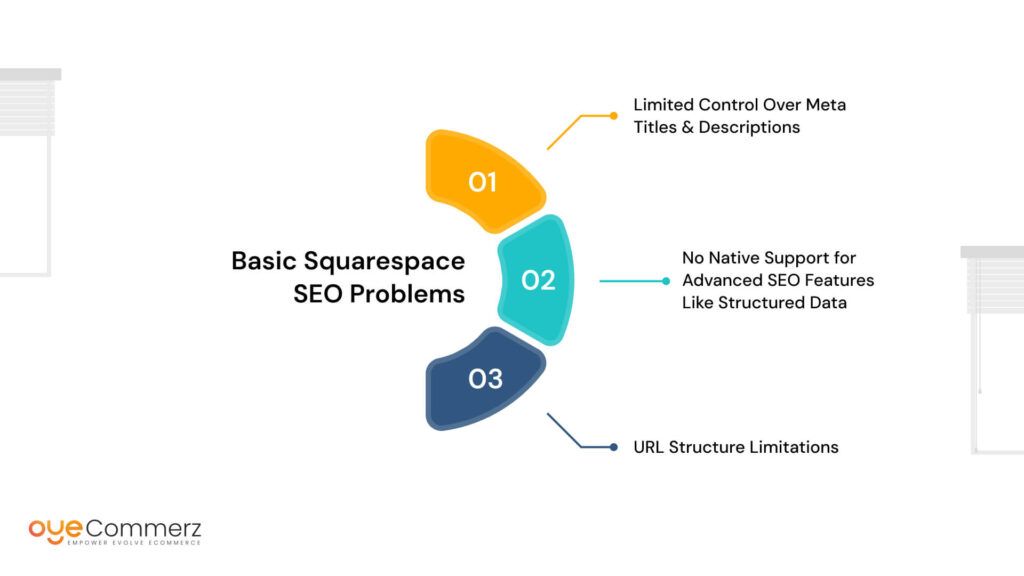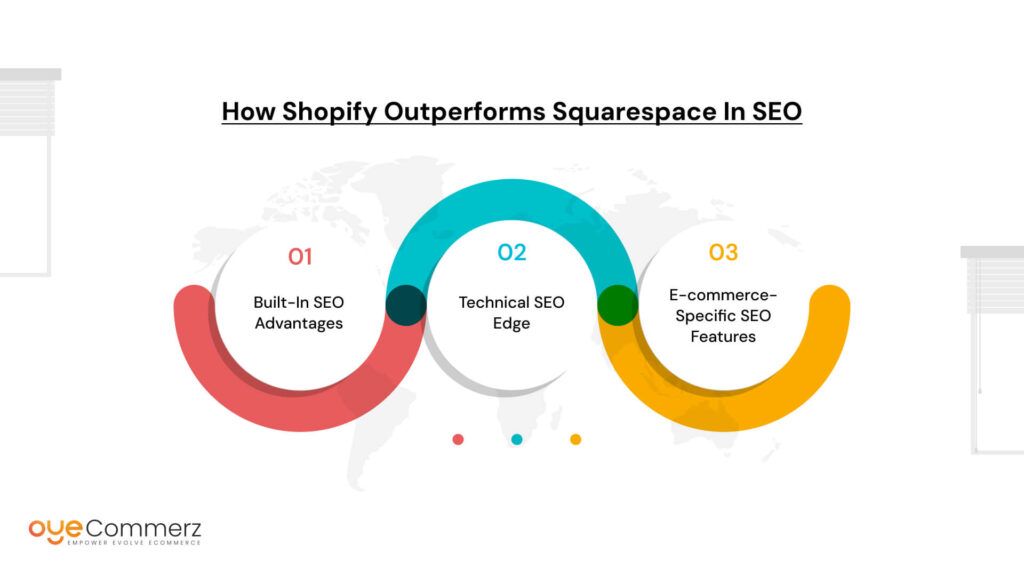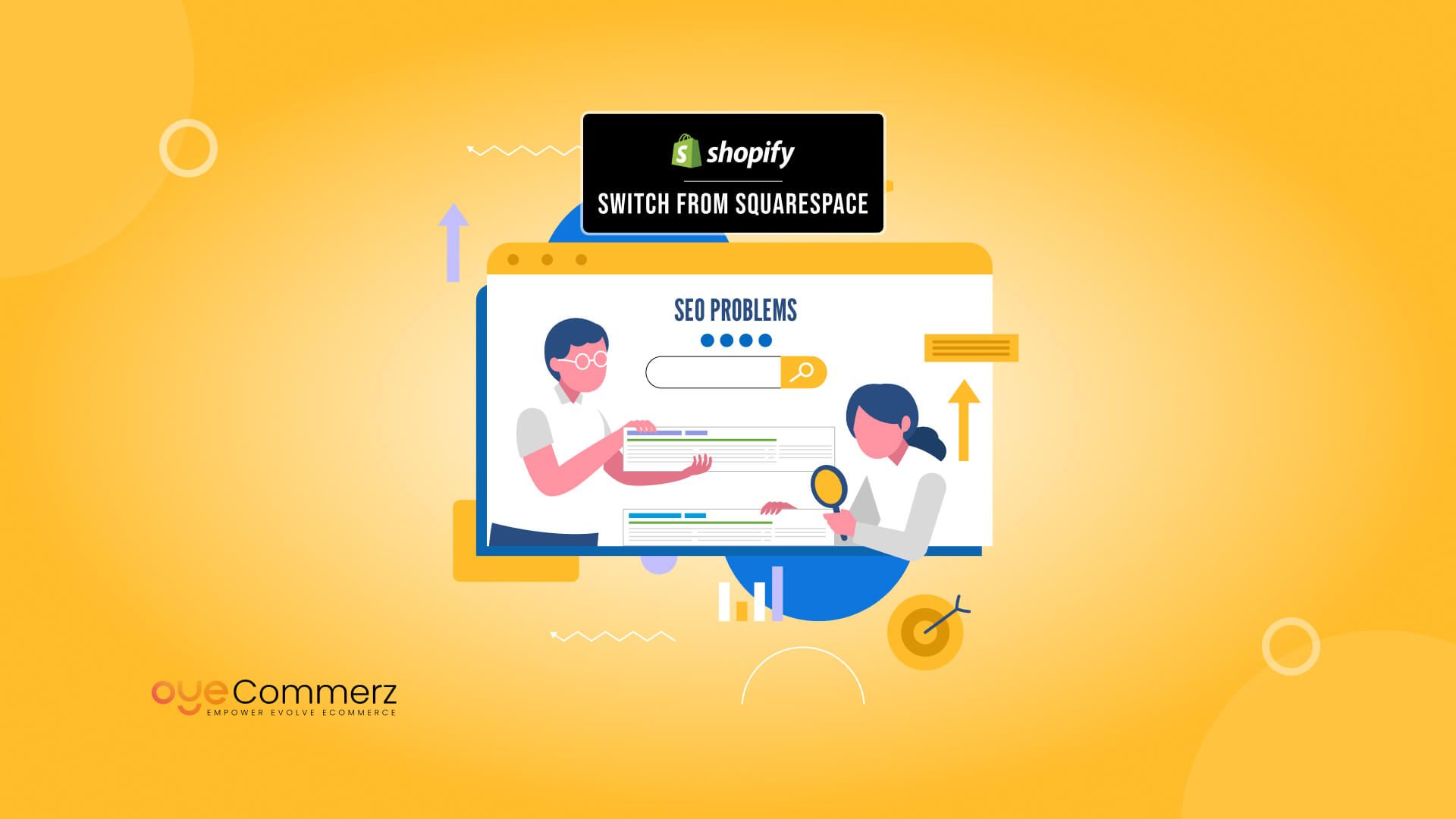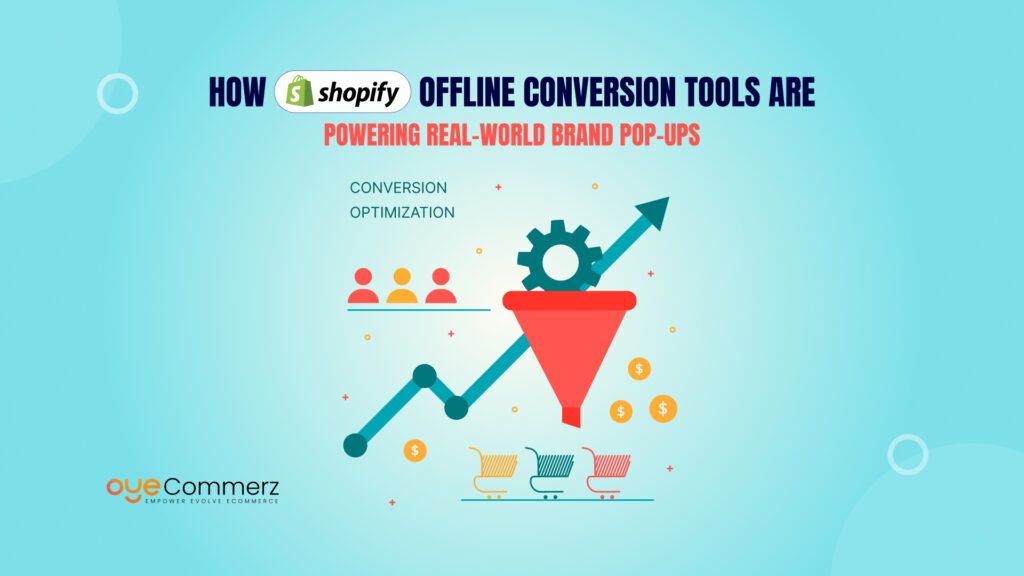When it comes to building an e-commerce store, choosing the right platform can make or break your online visibility. Two of the most popular platforms Squarespace and Shopify offer distinct advantages. While Squarespace is known for its beautiful design templates and ease of use, Shopify dominates in terms of scalability and e-commerce functionality. But where do these two platforms stand when it comes to SEO?
For many business owners, SEO (Search Engine Optimisation) is a crucial factor in attracting organic traffic, improving visibility on Google, and ultimately increasing sales. While Squarespace provides some SEO features, it has limitations that can hinder long-term growth. Shopify, on the other hand, is built with robust SEO capabilities, making it the preferred choice for serious e-commerce entrepreneurs.
In this blog, we’ll discuss Squarespace SEO problems, compare it to Shopify, and explore whether it’s time for you to make the switch from Squarespace to Shopify. We’ll also introduce Oyecommerz, a professional migration service that helps businesses transition from Squarespace to Shopify seamlessly.
Table of Contents
ToggleImportance of SEO for E-commerce Success
Search Engine Optimization (SEO) is the lifeline of any successful e-commerce business. It determines how easily potential customers can find your store online, how much organic traffic you receive, and ultimately, how many sales you generate. Unlike paid advertising, which stops delivering results once the budget runs out, SEO provides long-term visibility and continuous traffic, making it a cost-effective growth strategy.
One of the primary benefits of SEO is higher visibility on search engines like Google. When your store ranks on the first page for relevant keywords, it attracts qualified traffic people actively searching for the products you sell. This means a higher likelihood of conversions and increased revenue.
Additionally, a well-optimized e-commerce store improves user experience (UX). Google favors fast-loading, mobile-friendly websites with clear navigation. Optimizing your store for SEO naturally enhances usability, leading to better engagement, lower bounce rates, and higher customer satisfaction.
SEO also plays a critical role in brand credibility and trust. Websites that rank high on search engine results pages (SERPs) are often perceived as more authoritative and reliable, helping businesses establish a strong market presence.
Key Points:
- Higher Visibility – SEO improves rankings, increasing website traffic and potential sales.
- Cost-Effective Marketing – Unlike paid ads, organic search results drive long-term, sustainable traffic.
- Better User Experience – Fast-loading, mobile-optimized, and easy-to-navigate websites rank better and engage customers effectively.
- Brand Trust & Credibility – Ranking higher builds authority and customer trust in your brand.
- Competitive Advantage – Strong SEO ensures your store competes effectively against industry giants.
Who This Guide is For
Whether you’re just starting your e-commerce journey or looking to optimize your store’s SEO performance, this guide is for you. SEO is the backbone of online visibility, and if you’re struggling with Squarespace, understanding your options is essential.
Beginners Exploring E-commerce SEO
If you’re new to e-commerce, you may not be fully aware of how SEO affects your store’s traffic and sales. Platforms like Squarespace offer basic SEO features, but they lack the flexibility needed for long-term growth. This guide will help you understand the SEO limitations of Squarespace and why Shopify could be a better fit.
Growing Businesses Facing SEO Challenges on Squarespace
Many businesses start with Squarespace for its easy-to-use design and all-in-one hosting. However, as you scale, you may notice that your Google rankings aren’t improving despite best efforts. Slow page speeds, URL structure limitations, and lack of advanced SEO tools are common issues. If your business relies on organic traffic, migrating to Shopify could be a game-changer.
Established Store Owners Considering Shopify for SEO Advantages
If you’re an established brand struggling with product discoverability, blog categorization, and structured data on Squarespace, this guide will help you evaluate whether Shopify is the better choice. With better page speed, enhanced schema markup, and deeper app integrations, Shopify provides an SEO-friendly ecosystem for long-term growth.
Understanding the SEO Challenges with Squarespace
While Squarespace provides essential SEO tools, it lacks the advanced features needed for long-term e-commerce success. One major limitation is its restricted control over meta titles and descriptions, which are crucial for ranking higher on search engines. Additionally, its forced URL structures make it difficult to create clean, keyword-rich links. Slow page speed, limited structured data support, and lack of full control over robots.txt and sitemaps further hinder SEO performance. For businesses relying on organic traffic, these challenges can lead to lower search rankings and reduced visibility, making it harder to compete in the e-commerce space.
Basic Squarespace SEO Problems

For newcomers to SEO, Squarespace presents several challenges:
- Limited Control Over Meta Titles & Descriptions
- Squarespace allows some customisation, but it lacks full control over page titles and meta descriptions, which are critical for search engine rankings.
- No Native Support for Advanced SEO Features Like Structured Data
- Structured data (schema markup) helps Google understand your website better, but Squarespace has limited built-in options for implementing this.
- URL Structure Limitations
- Squarespace forces categories into URLs, making them less clean and less SEO-friendly.
Technical SEO Issues
For those with advanced SEO knowledge, Squarespace presents even more roadblocks:
- Slow Page Speed Due to Bloated Code
- Squarespace sites often load slower compared to Shopify, affecting SEO rankings.
- Lack of Full Control Over robots.txt and sitemap.xml
- Shopify allows full customization of these files, whereas Squarespace restricts access.
- Difficulty in Implementing Canonical Tags and Hreflang for International SEO
- Without proper canonicalization, duplicate content issues can arise, affecting search rankings.
- No Built-in Blog Category Pages for Better Content Organization
- A well-structured blog improves internal linking and keyword targeting, but Squarespace lacks categorization features.
E-commerce-Specific SEO Drawbacks
For businesses relying on SEO to drive product sales, Squarespace falls behind:
- Weak Product Schema Markup
- Shopify provides rich snippets (like reviews and prices) that enhance search engine visibility, but Squarespace lacks robust schema markup.
- No Full-Fledged Product Filtering
- Shopify’s advanced filtering improves user experience and SEO, while Squarespace has limited filtering options.
- Limited App Integrations for Advanced SEO Tools
- Shopify offers apps like Yoast SEO, Ahrefs, and SEMrush, whereas Squarespace has fewer options.
How Shopify Outperforms Squarespace in SEO

A. Built-In SEO Advantages
- Fully Customizable URLs, Meta Tags, and Descriptions
- Clean and SEO-Friendly URL Structures
- Automatic Generation of Sitemaps and robots.txt Editing
B. Technical SEO Edge
- Faster Loading Speed & Optimized Code
- Better Mobile Responsiveness
- Seamless Integration with Google Search Console and Other SEO Tools
C. E-commerce-Specific SEO Features
- Advanced Schema Markup for Products
- Better Filtering and Categorization for Search Engine Ranking
- More Flexibility in Integrating Third-Party SEO Apps
Squarespace SEO vs. Shopify SEO Comparison Table
Feature | Squarespace
| Shopify |
Custom Meta Tags | Limited | Full Control |
URL Structure | Rigid | Fully Customizable |
Page Speed | Slower | Faster |
Schema Markup | Basic | Advanced |
Blog SEO | Limited Categorization | Full Categorization |
App Integrations | Fewer | More SEO Tools Available |
Sitemap & robots.txt | Limited Control | Fully Customizable |
Is Shopify the Right Move for You?
When Should a Business Consider Switching?
A business should consider switching to Shopify if SEO is crucial for growth, and Squarespace’s limited optimization options are holding them back. If you rely on organic traffic to drive sales, but struggle with slow load speeds, poor URL structures, and weak schema markup, Shopify’s built-in SEO tools can offer a competitive edge. Migrating also makes sense if you need better mobile responsiveness, seamless Google Search Console integration, and more third-party SEO app support.
Who Should Stick with Squarespace?
If your business prioritizes design over SEO, and you have a small product catalog, Squarespace may still be a good fit. Businesses that rely on brand aesthetics, storytelling, and portfolio showcasing rather than aggressive SEO strategies can continue using Squarespace. It’s also a decent option for those who prefer an all-in-one, easy-to-use platform without the need for extensive customization.
Who Should Move to Shopify?
If your store depends on organic traffic for sales, Shopify is the superior option. Businesses that are scaling, selling a large number of products, or targeting competitive keywords will benefit from Shopify’s advanced SEO flexibility, schema markup, and faster performance. Those looking to integrate SEO-friendly blogs, robust filtering, and structured navigation should also consider Shopify for long-term success.
Contact to Migrate your Site to Shopify Now
Migrating to Shopify: How Oyecommerz Can Help
Common Migration Challenges
Migrating from Squarespace to Shopify can be tricky, especially if you want to preserve SEO rankings and avoid losing traffic. Some common challenges include:
- Broken URLs and Redirects – If old URLs change, they can lead to 404 errors, affecting rankings.
- Metadata and Schema Loss – Meta descriptions, structured data, and product schema can get lost during migration.
- Product & Customer Data Transfer – Moving large amounts of data manually can be time-consuming and error-prone.
How Oyecommerz Ensures a Seamless Migration Without Losing SEO Value
Oyecommerz helps businesses migrate from Squarespace to Shopify smoothly while protecting their SEO efforts. Here’s how:
- 301 Redirects Setup – Ensures old URLs properly redirect to new Shopify URLs to retain rankings.
- SEO Data Transfer – Preserves meta tags, structured data, and key SEO settings.
- Full Product & Customer Migration – Transfers all product listings, images, and customer information without errors.
Benefits of Using Oyecommerz for Hassle-Free Migration
Oyecommerz makes migration stress-free by offering:
- Expert Handling: experienced professionals ensure a smooth transition.
- No SEO Loss: Maintains your rankings and organic traffic.
- Quick & Efficient Migration: Saves you time and effort while avoiding common pitfalls.
Migrate from Squarespace to Shopify with Oyecommerz – SEO-Optimized & Hassle-Free!
Don’t let Squarespace’s SEO Problems hold back your e-commerce growth. Oyecommerz ensures a smooth Squarespace to Shopify migration, preserving your store’s data, design, and search rankings. With Shopify’s advanced SEO tools, scalable e-commerce features, and seamless integrations, you’ll be set for long-term success.
Get Started Today! Contact Oyecommerz for a stress-free migration and unlock the full potential of Shopify.
Conclusion
While Squarespace is a great platform for building visually appealing websites, it falls short in SEO optimization, especially for e-commerce businesses. Many users migrating from Squarespace to Shopify do so because of SEO limitations that hinder long-term growth. Squarespace restricts control over meta tags, URLs, and structured data, all of which are crucial for ranking on search engines. Unlike Shopify, Squarespace enforces rigid URL structures, making it harder to optimize for keywords and improve click-through rates.
For e-commerce businesses, Squarespace’s SEO problems become even more apparent. The platform offers weak product schema markup, reducing visibility in search results. There’s also no robust product filtering system, which impacts internal linking and keyword targeting.




